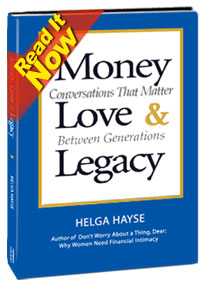We take “normal” life for granted.
The oncoming car will stay in its lane. The driver behind us won’t ride our rear fender.
The grazing deer won’t run out on the road .
The driver in the weaving car can handle his tire blowout.
The security details at the concert area will prevent a terrorist attack.
“We’ll talk about the details later” Bob had said. “Let’s just enjoy the concert and our Las Vegas weekend. I promise we’ll talk with the attorney next week. ”
Bob had finally taken the time to update his will and estate plan so that it reflected his current marriage to Sheila, his second wife. The updated draft documents from the attorney were on the living room table. That’s what they needed to discuss, to make sure she understood what was in the plan.
For this couple, next week never happened. Bob is in the hospital on life support, fighting for his life after trying to save Sheila from the savage assault of bullets that rained down on them at the music festival.
The conversation he promised they would have didn’t happen. Bob had delayed for months reviewing the updated will and estate documents. His first will was still in effect; his first wife and their son had powers of attorney for health care and financial decisions.
At the hospital, the doctors were talking with Bob’s son and first wife. Sheila was not in the loop. If Bob lived, her husband might remain on life support and his first wife would be making decisions about him. If he died, the current will distributed his assets to his first wife and son.
“Normal’ life can change in a minute. We have no control except to plan for the things we hope will never happen. Making sure a will is current is one way to do that.
We postpone at our peril and put people we love at risk . Too often, it’s too late.

